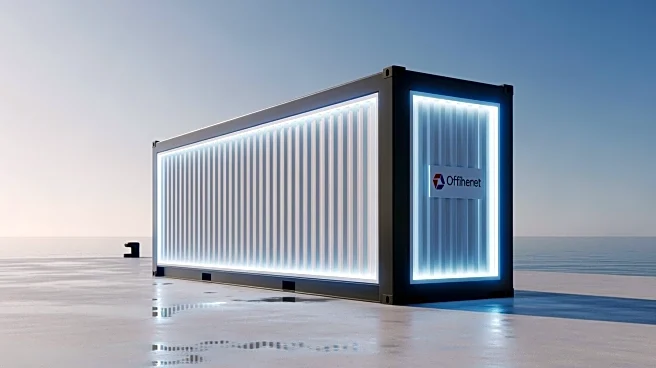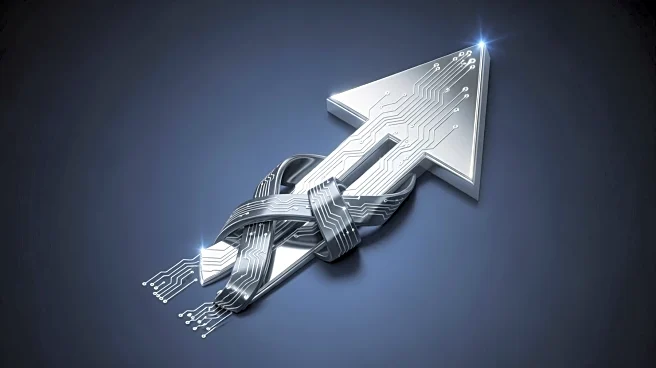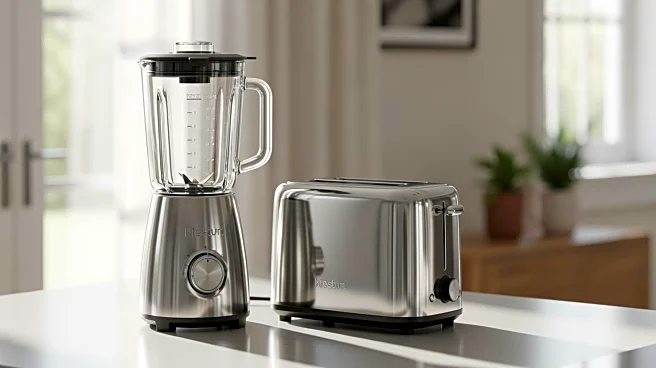What's Happening?
BIO-UV Group has successfully completed the first commercial deployment of its containerized BIO-SEA ballast water treatment system at Port-la-Nouvelle in southern France. This deployment supports the installation
of the EFGL floating offshore wind project in the Mediterranean, marking a significant milestone in integrating marine environmental technologies into the renewable energy supply chain. The project, operated by Eoliennes Flottantes du Golfe du Lion (EFGL), is the first floating offshore wind development in the Occitanie region. BIO-UV's system treated water deballasted from three floating wind turbine platforms, ensuring compliance with IMO D-2 standards and local environmental regulations.
Why It's Important?
The successful deployment of BIO-UV's containerized ballast water treatment system is crucial for advancing environmental management technologies in the renewable energy sector. Floating offshore wind projects like EFGL are pivotal for Europe's net-zero ambitions, as they enable the development of deep-water sites inaccessible to fixed-bottom turbines. The integration of such technologies helps prevent the spread of invasive aquatic species, promoting sustainable practices in marine construction. This achievement could lead to broader adoption of containerized solutions in the offshore wind industry, potentially influencing future developments across Europe and beyond.
What's Next?
BIO-UV Group is exploring further commercial opportunities to deploy its containerized ballast water treatment technology in upcoming floating wind projects. The success of the EFGL project may encourage other stakeholders in the offshore wind industry to consider similar environmental management solutions. As the demand for renewable energy grows, the adoption of innovative technologies like BIO-UV's system could become more widespread, supporting the expansion of floating wind farms and contributing to global sustainability goals.
Beyond the Headlines
The deployment of containerized ballast water treatment systems represents a shift towards modular and mobile solutions in environmental management. This approach not only enhances compliance with environmental standards but also offers flexibility in treating ballast water during construction phases. The success of such systems could influence regulatory frameworks, encouraging the adoption of portable treatment solutions in various maritime sectors, thereby fostering a culture of environmental responsibility.









